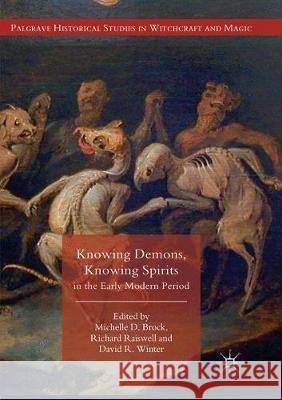Knowing Demons, Knowing Spirits in the Early Modern Period » książka
topmenu
Knowing Demons, Knowing Spirits in the Early Modern Period
ISBN-13: 9783030093136 / Angielski / Miękka / 2018 / 317 str.
Kategorie BISAC:
Wydawca:
Palgrave MacMillan
Seria wydawnicza:
Język:
Angielski
ISBN-13:
9783030093136
Rok wydania:
2018
Wydanie:
Softcover Repri
Numer serii:
000352538
Ilość stron:
317
Waga:
0.36 kg
Wymiary:
20.83 x 14.99 x 1.52
Oprawa:
Miękka
Wolumenów:
01











